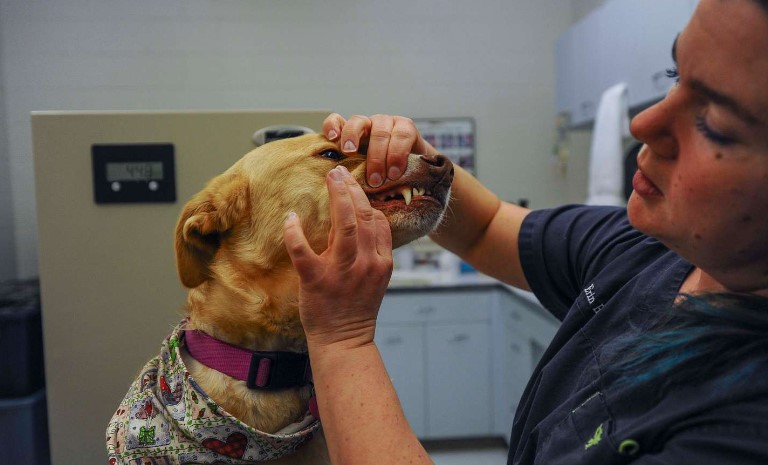Veterinarian Facts and Information – A veterinarian is a medical professional who specializes in the diagnosis, treatment, and prevention of diseases and injuries in animals. They are responsible for the health and well-being of a wide variety of animals, including pets, livestock, and wildlife. Veterinarians play a vital role in society by ensuring that animals are healthy and free from pain and suffering.
To become a veterinarian, individuals must complete a rigorous educational and training process. The first step is to obtain an undergraduate degree, typically in biology or a related field. After completing a bachelor’s degree, individuals must then attend an accredited veterinary school, which typically takes four years to complete. During veterinary school, students take courses in anatomy, physiology, pharmacology, and surgery, as well as participate in hands-on clinical training. After graduation from veterinary school, individuals must pass a national licensing exam in order to practice as a veterinarian.
Veterinarians can work in a variety of settings, including private clinics, research facilities, zoos, and government agencies. They may also choose to specialize in a specific area of medicine, such as surgery, emergency medicine, or animal behavior. Some veterinarians choose to work with specific types of animals, such as companion animals, livestock, or exotic animals.
Private clinics are the most common type of veterinary practice. Here, veterinarians provide medical care for companion animals such as dogs, cats, birds, and small mammals. They perform physical exams, diagnose and treat illnesses, perform surgery, and prescribe medication. They also advise animal owners on proper care, including nutrition, exercise, and behavior.
Research facilities, such as universities and pharmaceutical companies, employ veterinarians to conduct research on animal health and disease. They also work on developing new drugs and treatments for animal illnesses.
Zoos and aquariums employ veterinarians to care for the health of the animals in their collections. These veterinarians also work on conservation efforts to protect endangered species.
Government agencies, such as the USDA and FDA, employ veterinarians to ensure the safety of the food supply and to regulate the use of drugs and other veterinary products.
Specialization in veterinary medicine is also possible, such as surgery, emergency medicine, or animal behavior.
Veterinary surgeons specialize in performing complex surgeries on animals. They may also provide care for animals that have been injured in accidents.
Veterinarians who specialize in emergency medicine provide care for animals that have been injured or are suffering from a sudden illness. They may work in emergency clinics or animal hospitals.
Veterinarians who specialize in animal behavior provide care for animals with behavioral problems. They also work with animal trainers and owners to help animals adjust to new environments and to teach them new behaviors.
In summary, veterinarians are medical professionals who specialize in the diagnosis, treatment, and prevention of diseases and injuries in animals. They play a vital role in society by ensuring that animals are healthy and free from pain and suffering. To become a veterinarian, individuals must complete a rigorous educational and training process and pass a national licensing exam. They can work in a variety of settings, including private clinics, research facilities, zoos, and government agencies, and may choose to specialize in a specific area of medicine such as surgery, emergency medicine, or animal behavior. Related Reading – What is the importance of a vet clinic near you?







